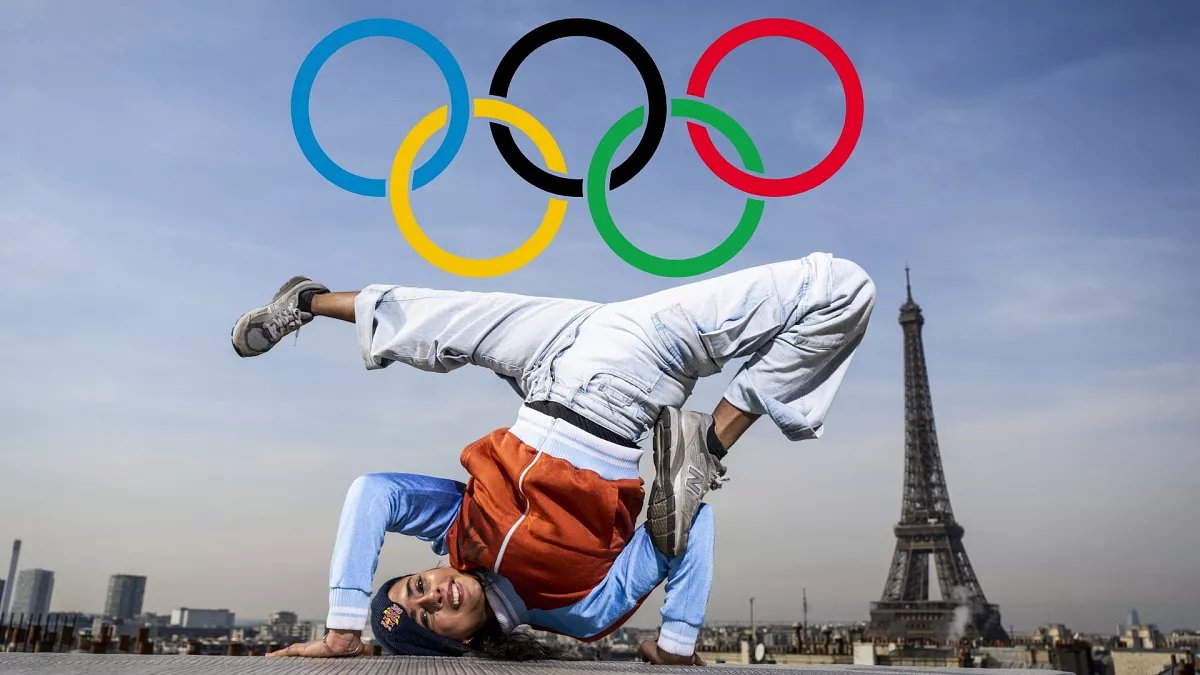BREAKING: The Newest Olympic sport debuting in Paris

From the Bronx to the Olympic spotlight, breakdancing makes its historic debut at the Paris 2024 Games, bringing youthful energy and hip-hop culture to the world stage.
The 2024 Paris Olympic Games, which feature 10,500 athletes from 203 National Olympic Committees (NOC) and the International Olympic Committee Refugee Olympic Team, are the largest yet.
Over 19 days of competition, from July 24 to August 11, the 10,500 athletes will compete in 32 sports, according to their disciplines of specialization.
More To Read
- Full competition lineup unveiled for 2028 Los Angeles Olympics
- Somalia's senior Olympic Committee officials suspended over alleged misconduct
- KNPC and Government promise change ahead of 2028 Paralympic Games
- Kenenisa Bekele opens up about Paris Olympics struggles and future plans
- Paris 2024: Data proves Kenya needs to diversify its sporting portfolio
- Kenya's Paris Olympics performance highlights need for sporting diversification
The 32 sports, subdivided into 329 events, will take place at 35 venues and account for 350,000 hours of TV broadcast as millions of spectators worldwide follow the Games on television and other devices.
Apart from ancient Olympic sports such as boxing, equestrian events, running (athletics), and wrestling, as well as popular global sports such as basketball, football, rugby, and volleyball, the Olympic Games, in recent years, have been expanding their repertoire of sports disciplines and events.
The last Olympic Games, held in Tokyo in 2021, featured the introduction of the three sports, which, though considered unconventional, owe their popularity to the advent of social media and the global growth of communities that actively participate in those sports.
Someone tell me this is false. Breakdance (#Breaking) in #Olympics? > 🕺💃🤦🏻♂️😲 pic.twitter.com/TH1WsHtY9p
— 𝕊𝕒𝕥𝕪𝕒𝕛𝕚𝕥 𝕊𝕒𝕙𝕦 (@satyajits) July 29, 2024
The three sports, namely skateboarding, sport climbing, and surfing, return to the Olympic Games this year. However, another unconventional sport, breaking, has surpassed them as the newcomer to the Olympics.
The addition of these four sports to the calendar of events at the Olympic Games plays into recent reforms by the IOC to introduce new disciplines to which the younger generation relates.
"With this program, we are preparing the Olympic Games in Paris 2024 for the post-Corona world." There is also a strong focus on youth,” IOC President Thomas Bach said in a statement in 2020 when he announced that breaking will be a sport at the 2024 Paris Olympic Games.
The apex body for the world's premier international sporting event has heard the clamor for equality, diversity, and inclusion, opening the door for people to compete in sports that, at first glance, might not be considered Olympic sports.
At least 75 countries across four continents must actively play a sport for it to be considered for inclusion at the Olympic Games.
However, the IOC appears to have relaxed this threshold as part of its ongoing reforms to spruce up the Olympic Games to make them more appealing to younger audiences, allowing host cities to add a few sports that the local populace connects with.
As such, that is how breaking, also known as b-boying, b-girling, or breakdancing, became an Olympic sport as French organisers recognised the widespread popularity of breaking in France.
The IOC's guidelines on those reforms do not guarantee that sports proposed by one host city will return to subsequent games.
While Paris 2024 has allowed the return of skateboarding, sport climbing, and surfing, breaking will have to wait until Brisbane 2032 to feature again at the Olympic Games as Los Angeles has left it out of its programme for the 2028 Olympic Games.
The inclusion of surfing in the Paris 2024 Olympics set a new record for the most distant medal competition from the host city.
Tahiti, a French overseas territory in the southern Pacific, will host the surfing competition for the 2024 Paris Olympic Games because of the island's renowned massive waves.
Tahiti is 15,000 km from Paris, making it the greatest physical distance for a medal event from the host city. The previous record had been in place since 1956, when Stockholm, Sweden hosted the equestrian events of the 1956 Summer Olympics in Melbourne, Australia.
The introduction of breaking at the 2024 Paris Olympic Games has garnered attention and focus on this new addition to the Olympic Games, with many individuals eager to learn about its history and rules.
The sport, or dance, has its roots in the Bronx area of New York, where it became popular in the 1970s as a result of hip-hop music. Breaking involves acrobatic movements and quick footwork that sync with the beat of the hip-hop song.
The surge in popularity paved the way for its inclusion in the 2018 Youth Summer Olympic Games held in Buenos Aires. Its global success later convinced the organizers of the 2024 Paris Olympic Games to include it as a sport.
The World DanceSport Federation will host breaking competitions at the 2024 Paris Olympic Games. Contests will take place over two days at Place de la Concorde, a major public square in Paris that is situated at the end of the Champs-Élysées, one of the French capital’s most famous avenues.
The competition for girls will take place on August 9, followed by those for boys on August 10.
Each gender will feature 16 competitors, each fighting to win the gold medal in their respective category. The competition will split the 16 breakdancers into four groups of four for the round-robin stage. The top two dancers in each group will qualify for the quarterfinals, after which contestants will battle to knock each other out for a chance to fight for the gold medal.
At this competition, we will refer to contests as "battles." In breaking language, a battle is when two dancers, or two groups of dancers, go head-to-head in a breakdancing competition. We refer to male breakdancers as b-boys and their female counterparts as b-girls.
During battles at the Olympic Games, b-boys and b-girls will go head-to-head in two 60-second throw-downs at the round-robin phase and three in the knockout stages. A throw-down in breaking lingo refers to when a dancer hits the floor and starts breakdancing.
In the competition, there will also be DJs spinning the music, and the contestants will battle to impress the nine judges, who will vote to decide the winner at the end of each battle. There will also be a host with a microphone to hype up the competition and manage the transition between battles.
During battles, the DJ will select the music and play the tracks, which will prompt the b-boys and b-girls to breakdance as they take turns showing their moves. The dancers will be awarded points for technique, range of dance moves, fluency in performance, creativity, innovation, and harmony. Each of the five categories will account for 20% of the final score.
The nine judges will determine the winners by using a digital slider, which they will move towards the dancer who is winning the battle as assessed by the five scoring categories. The battle's winner is the dancer with the highest average of sliders.
Kenya won't have a breakdancing representative at the 2024 Olympic Games in Paris, but that doesn't mean the sport isn't popular there.
Omondi Joseph Milla, also known as B-Boy Drift, and George Kaminju, also known as B-Boy Mzushiafrica, tried to qualify for the Olympic Games, but their performance at the African Breaking Championship in Morocco in May of last year was insufficient to guarantee a spot at the 2024 Paris Olympic Games.
In the preliminary rounds, B-Boy Mzushiafrica and B-boy Drift lost, placing 32nd and 37th, respectively, out of 45 competitors.
The top 16 dancers qualified for the round-robin stage, from which B-Boy Billy of Morocco emerged as the winner and, hence, Africa’s sole representative in Breaking at the 2024 Paris Olympic Games. B-Girl Elmamouny, a Moroccan, also won the girl's competition in that event and will compete in the girls' breaking event at this year's Olympics.
Top Stories Today











































